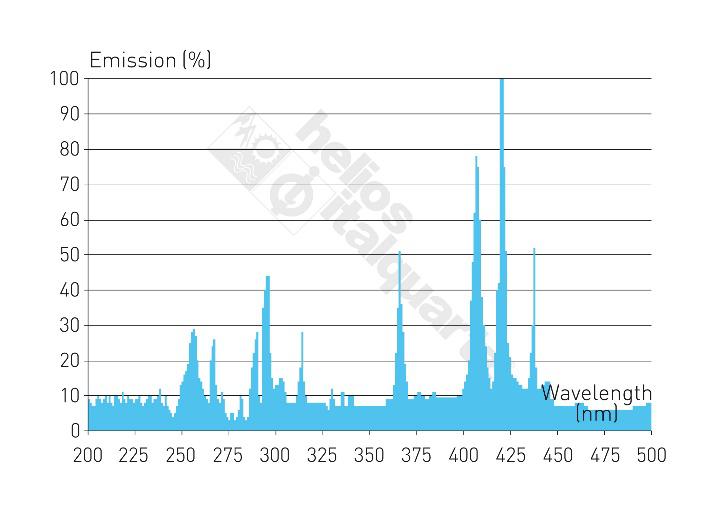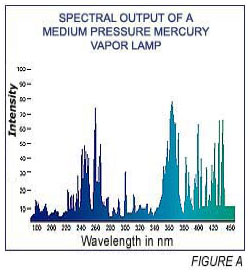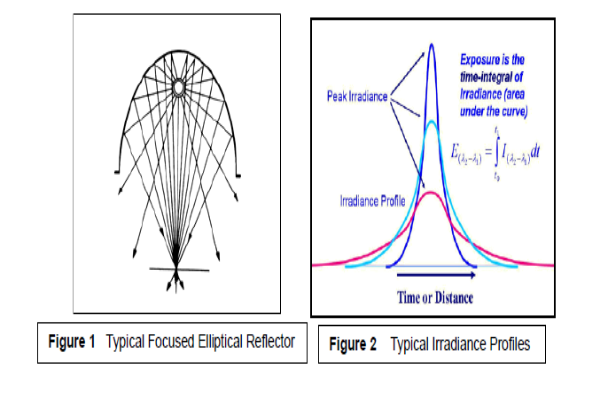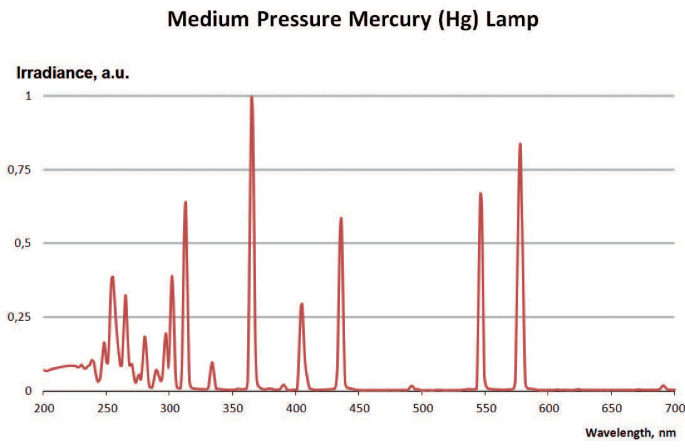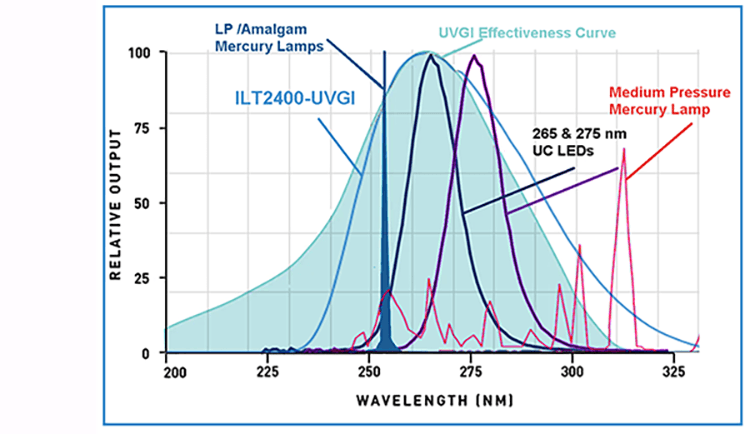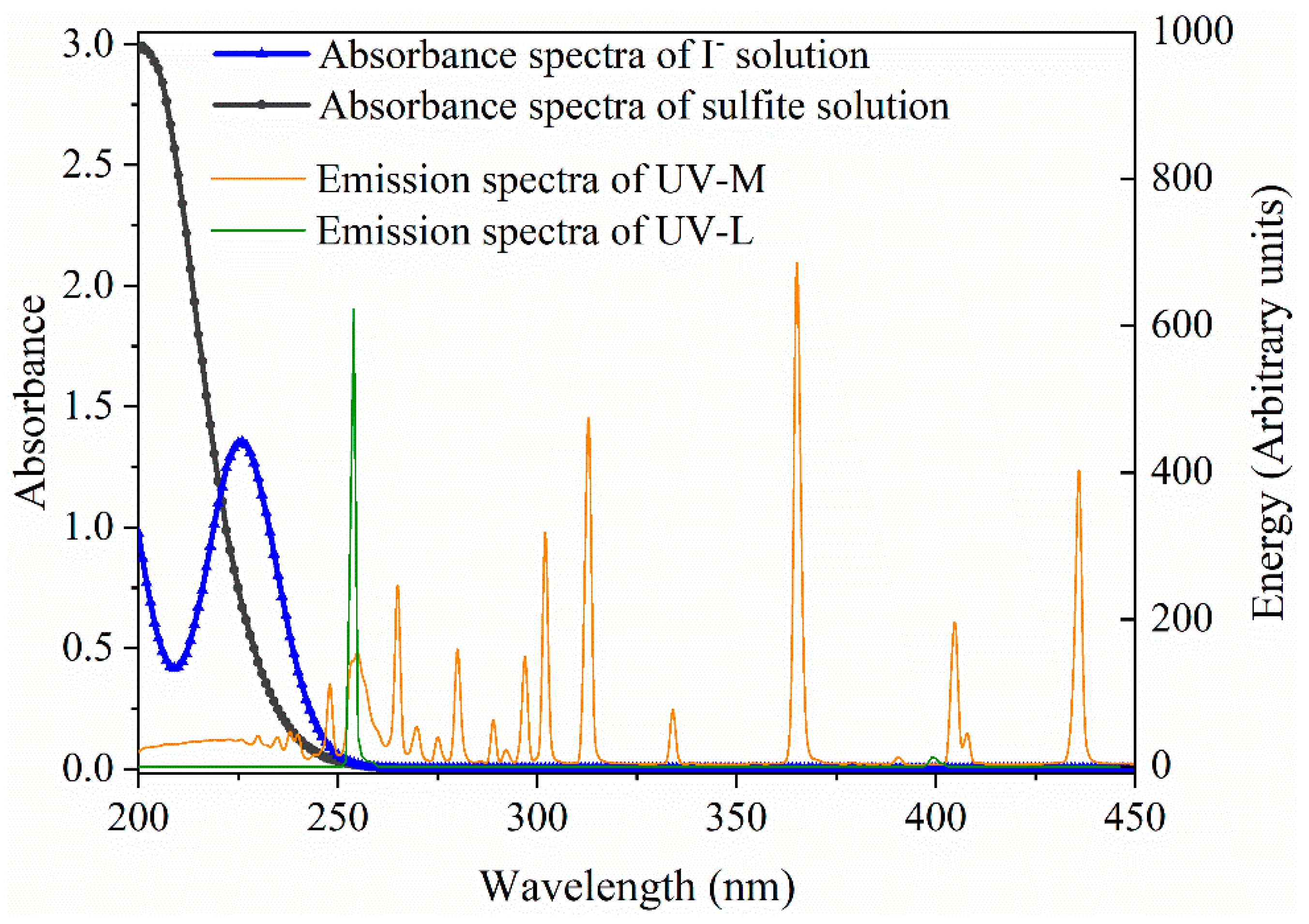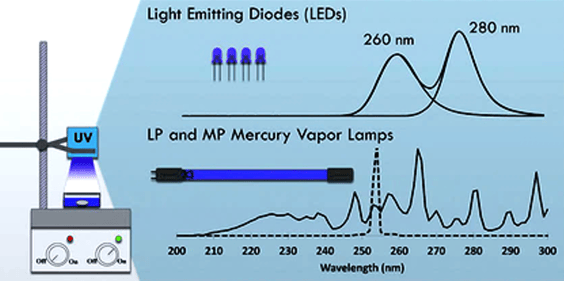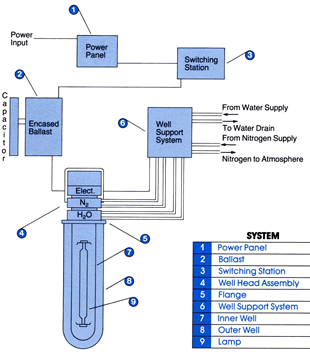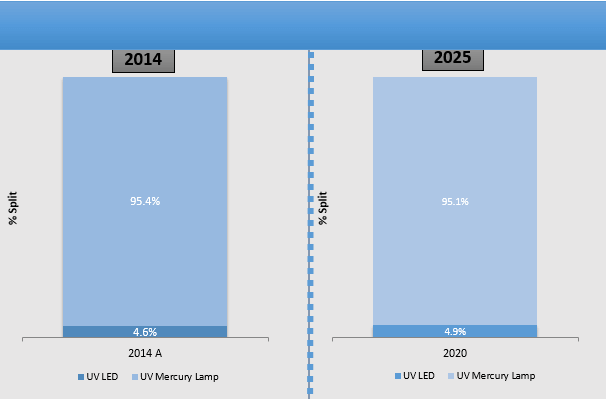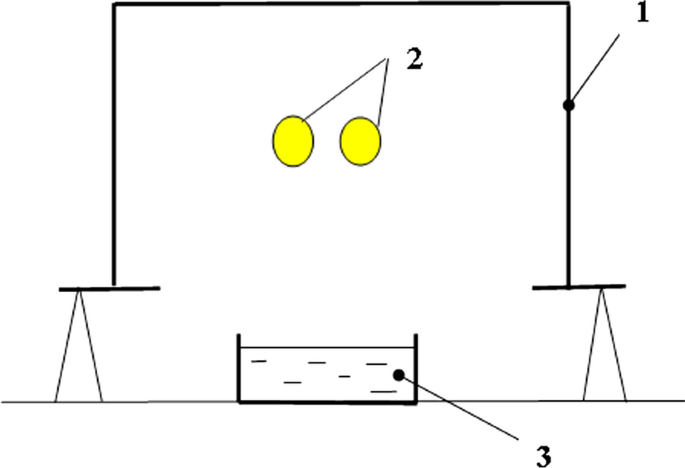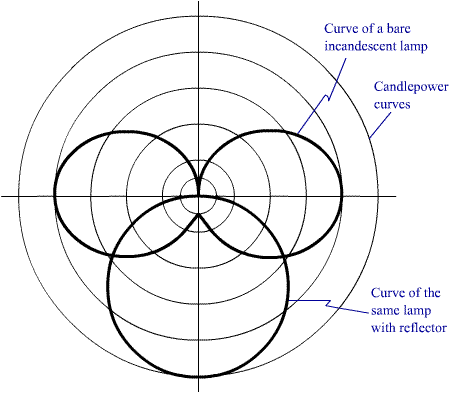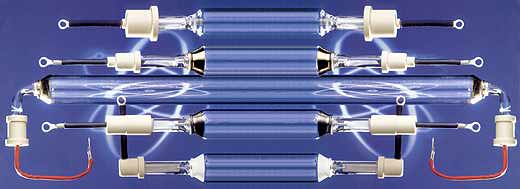Emission Spectrum Of Medium Pressure Mercury Lamp

In 1860 john thomas way used arc lamps operated in a mixture of air and mercury vapor at atmospheric pressure for lighting.
Emission spectrum of medium pressure mercury lamp. The spectrum of uv medium pressure lamps can be influenced by doping graphic 5 6. Mercury lamps emit sufficient energy above 300 nm at only certain wavelengths which are very useful for monochromatic irradiation and so the spectrum can also be used as a point light source providing uniform irradiation. Emission peak is always very selective focused on precise wavelengths which generally are 365 385 395 405 nm 5nm. The mercury vapor arc which is created exhibits the unique property of high emission of light in the ultraviolet region of the spectrum.
Right around 1900 the mercury arc rectifier was developed this luminous device was very important for power conversion. Lamps are divided into families based on the pressure of gas and whether or not the cathode is heated. In particular intense emission occurs in the 240 270 nm and 350 380 nm areas which is where typical uv photoinitiators absorb. Nyc subways were still using original mercury arc rectifiers to convert ac to dc power up until the end of the 20th century.
At jelight company we also manufacture low pressure mercury grid lamps. The german physicist leo arons 1860 1919 studied mercury discharges in 1892 and developed a lamp based on a mercury arc. Medium pressure mercury lamps produce characteristic bands at 313 and 365 nm. Uv medium pressure lamps iron doped the metal halide uv medium pressure iron doped lamps emit uv radiation with peak emission in the uva range at 366 nm and 440 nm.
Custom sizes are also available. So it must be considered a virtually monochromatic radiation. In medium pressure mercury lamps a plasma that emits uv light is generated by applying electrical voltage. Hot cathode lamps have electrodes that operate at a high temperature and are heated by the arc current in the lamp.
Charles wheatstone observed the spectrum of an electric discharge in mercury vapor in 1835 and noted the ultraviolet lines in that spectrum. The grid design allows for uniform exposure of the uv light and is available in a variety of sizes. The distribution of energy over the wavelength ranges is depicted on the left. These early low pressure lamps used a lot of mercury today s lamps use a tiny amount of mercury.
Emission spectra for different types of quartz and double bore mercury emission spectra. Unlike most other uv sources the medium pressure lamp mpl has a polychromatic spectral distribution from 190 nm up to the infrared spectrum. The heat knocks electrons out of the electrodes by thermionic emission which helps maintain the arc in many types the electrodes consist of electrical filaments made of. Uv led lamps radiate a different emission spectrum from the one of traditional mercury uv lamps.
Thus within the scope of the physical possibilities wavelengths can be selectively generated or reduced in order to adapt the lamps to curing and other applications.
